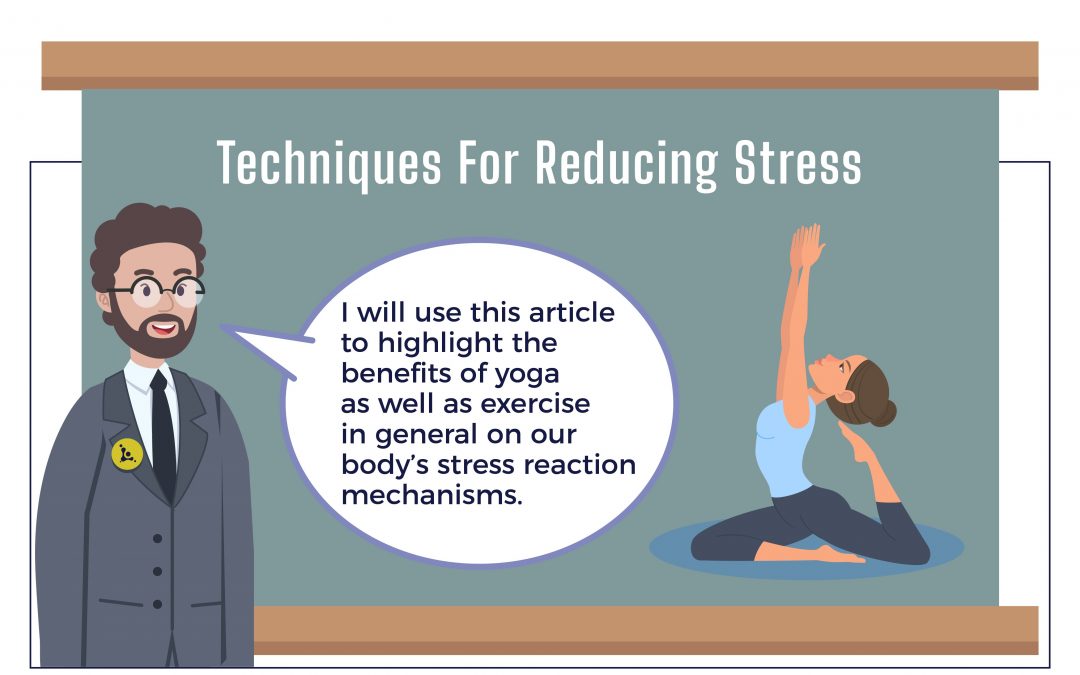This article is part 3 of a mini-series focusing on how the body can combat stressors. This final instalment dives into several techniques for reducing stress and how they can positively impact the body.
In this mini-series we have gone over what stress does to the body through the hormone cortisol. In addition to this, I have highlighted how chronic stress can impact mental health. Now that we understand how serious stress can be, it is just as important to explore the techniques to combat stress in our daily lives. Specifically, I will use this article to highlight the benefits of yoga as well as exercise in general on our body’s stress reaction mechanisms.
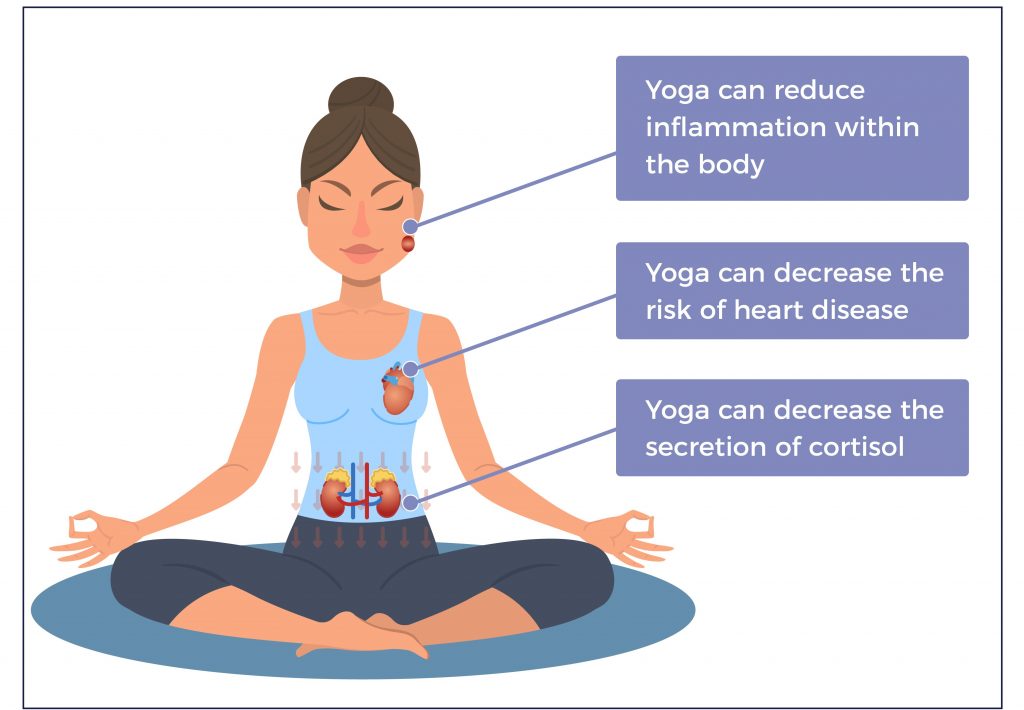
The practice of yoga has existed for centuries as a means to calm the body. What once may have been for a select few in the United States, has become a core part of many American’s exercise regimen. Yoga has even been adopted by famous athletes such as LeBron James as a means of muscle recovery and strength training. The reasons for this exist beyond simply a relaxing and creative way to move our bodies. There is an actual scientific basis as why people find yoga as an attractive method to relieve stress. Multiple research studies have found that the practice of yoga actually can decrease the secretion of cortisol! This allows the body to remain in a state of relaxation even after completing a yoga workout. A specific research study followed 24 women who categorized themselves as emotionally distressed. After completing a three-month yoga program, these women reported themselves as having lower levels of stress, and they also had lower levels of cortisol. In addition to this, other studies have highlighted that yoga can reduce inflammation within the body. This reduction of inflammation can prevent the establishment of serious stress related conditions such as heart disease. Overall, yoga is not only an effective way to produce positive routines in your daily life, but also a very manageable way to reduce the impact of chronic stress on the body. Yoga would be an excellent practice to pick up during these difficult times of social distancing and quarantine experienced globally.
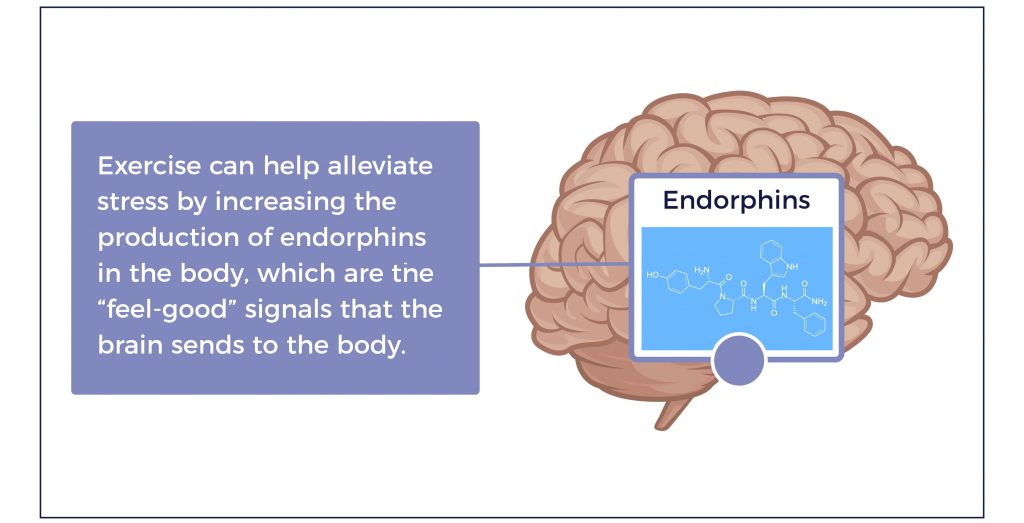
While yoga is incredibly helpful in reducing stress, it is not the only appropriate method. Exercise in general can be a huge help for someone who is feeling overstressed. According to the Mayo Clinic, exercise can help alleviate stress by increasing the production of endorphins in the body. Endorphins are “feel-good” signals that the brain sends to the body. An example of this is often referred to in popular culture as runner’s high. Just like yoga, exercise in general also reduces the stress hormones of cortisol and adrenaline in the body. In addition to this, exercise acts as a way of forgetting the triggers of stressful events. As one focuses on the single task at hand of exercise, it can prove effective in increasing optimism in a person. Moreover, consistent exercise has been proven to improve sleep, which can be disrupted in individuals with chronic stress and anxiety, furthering their condition. The physical manifestations of stress and anxiety often make exercise a challenge to complete; however, having a consistent plan of incorporating exercise into daily life is crucial to reap the benefits of a stress-free lifestyle.
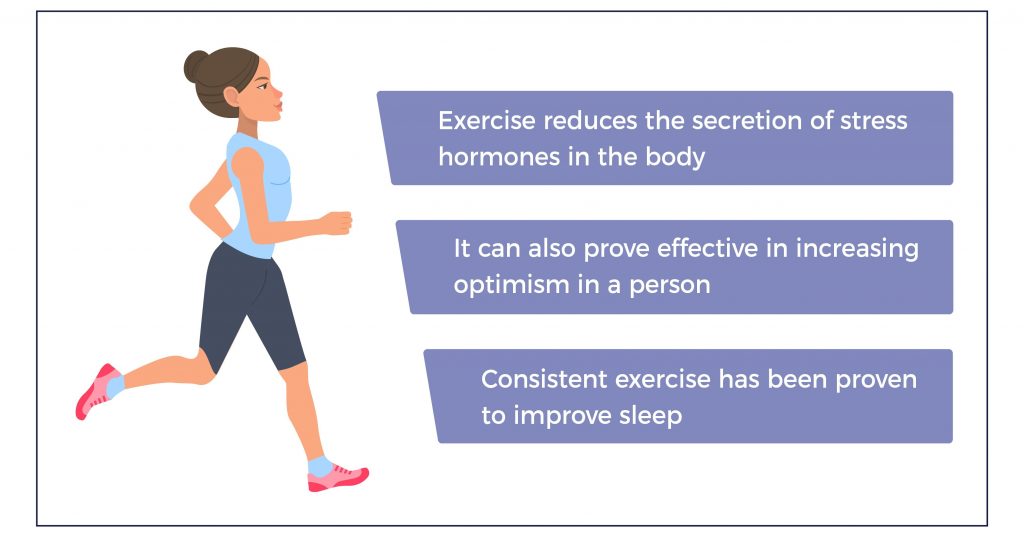
Overall, we have walked through the mechanisms by which stress can impact the body. We have found that cortisol is the main stress hormone and it can have serious impacts on our physical and mental health. Being aware of what stress can do to the body is the first step in preventing chronic stress in our daily lives. Establishing a daily exercise routine with clear goals will set yourself in the right direction to eliminating pent up stress. In addition to exercise and yoga, deep breathing and mindfulness has also proven effective in preventing stress. With this information, you are now prepared to live a more enjoyable lifestyle. One last thing to remember is that constantly focusing on preventing stress can become counterintuitive and actually increase anxiety levels. The biggest takeaway from this series will simply to remain mindful of stressful triggers in our lives and make active steps to eliminate them.
All The Best,
- Professor K
Article Mentioned: https://www.ncbi.nlm.nih.gov/pubmed/16319785/
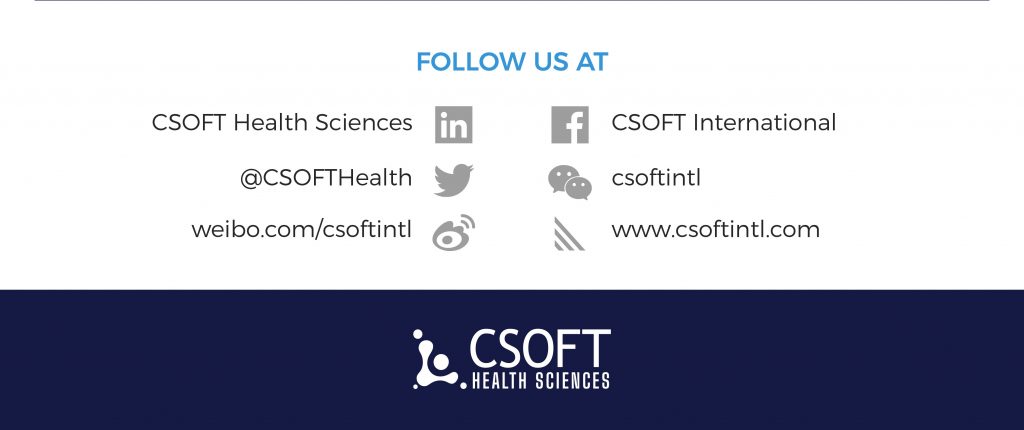
About CSOFT Health Sciences
CSOFT Health Sciences provides end-to-end medical translations for all phases of the product lifecycle, from pre-clinical to post-launch. We also specialize in market access consulting, medical writing, and CTD/eCTD submissions with the FDA, EMA, and NMPA. Our operations are compliant with ISO 17100 and certified in ISO 9001:2015 and ISO 13485:2016, ensuring our customized solutions meet the rigorous regulatory requirements of global submissions.
About CSOFT
CSOFT International is a leading provider of cross-border communications for enterprises seeking growth in global markets. Our expertise in localization, documentation, and branding encompasses a full range of end-to-end content and consulting services that we deliver in over 250 languages. With a focus in health sciences and smart technology, we work closely with our clients to deliver precision solutions to the challenges of engaging markets, consumers, and regulatory environments worldwide.
